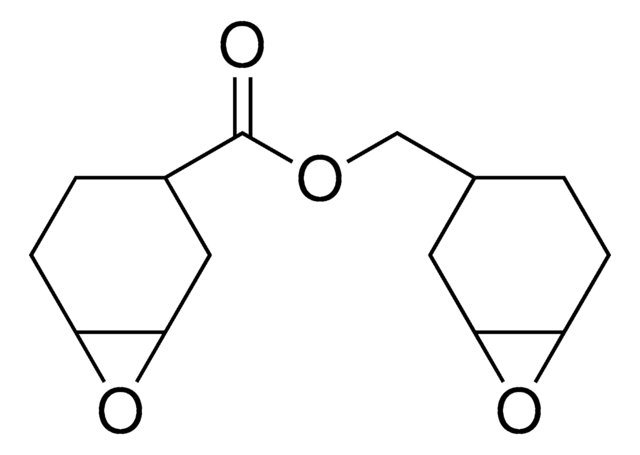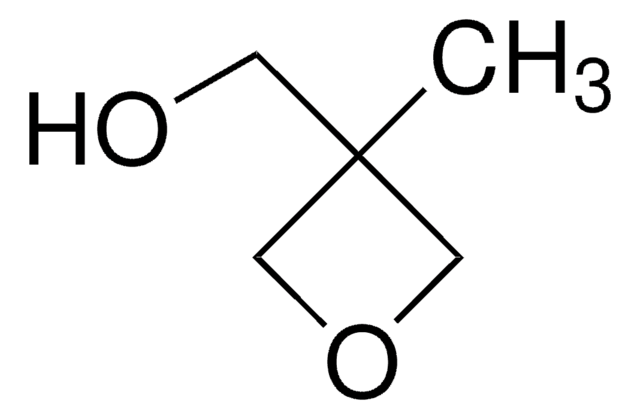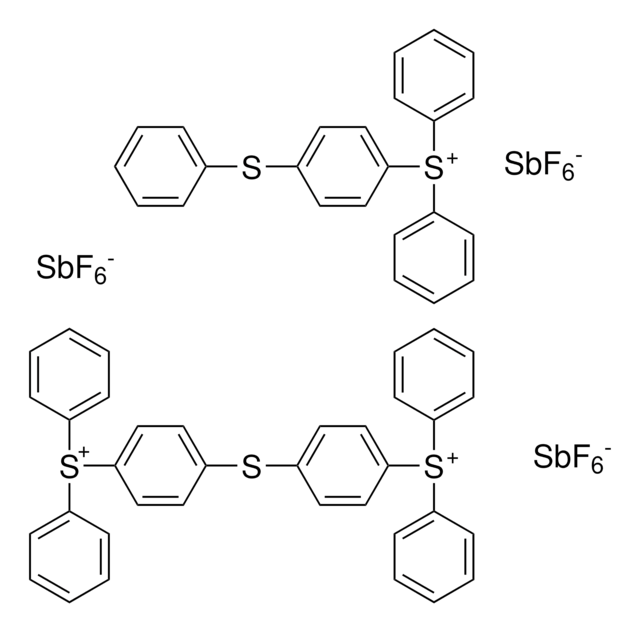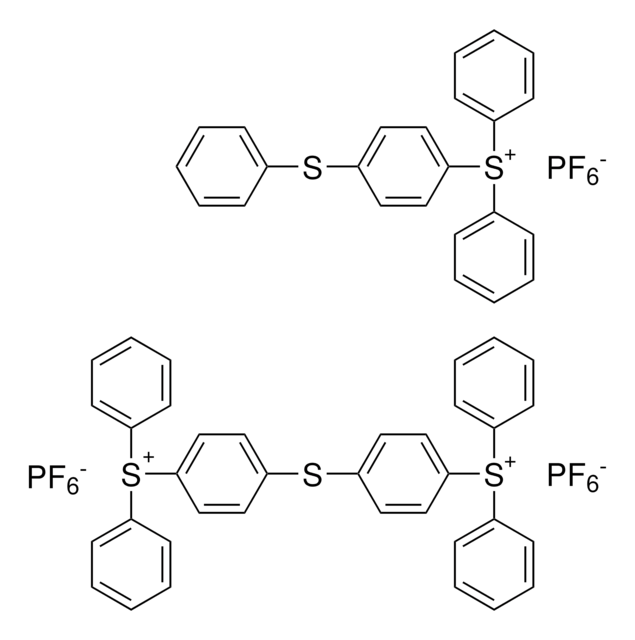444197
3-Ethyl-3-oxetanemethanol
96%
Iniciar sesiónpara Ver la Fijación de precios por contrato y de la organización
About This Item
Fórmula empírica (notación de Hill):
C6H12O2
Número de CAS:
Peso molecular:
116.16
EC Number:
MDL number:
UNSPSC Code:
12352100
PubChem Substance ID:
NACRES:
NA.22
assay:
96%
Productos recomendados
Quality Level
assay
96%
refractive index
n20/D 1.453 (lit.)
bp
96 °C/4 mmHg (lit.)
density
1.019 g/mL at 25 °C (lit.)
functional group
ether
hydroxyl
SMILES string
CCC1(CO)COC1
InChI
1S/C6H12O2/c1-2-6(3-7)4-8-5-6/h7H,2-5H2,1H3
InChI key
UNMJLQGKEDTEKJ-UHFFFAOYSA-N
Storage Class
10 - Combustible liquids
wgk_germany
WGK 3
flash_point_f
226.4 °F - closed cup
flash_point_c
108.00 °C - closed cup
ppe
Eyeshields, Gloves
Elija entre una de las versiones más recientes:
¿Ya tiene este producto?
Encuentre la documentación para los productos que ha comprado recientemente en la Biblioteca de documentos.
Los clientes también vieron
Preparation and characterization of fluorescent hyperbranched polyether.
Gao C, et al.
Reactive functional Polymers, 58(1), 65-72 (2004)
Paweł Parzuchowski et al.
Polymers, 12(1) (2020-01-23)
Hyperbranched polyoxetanes are a relatively new class of polymers. These are branched polyethers that are synthesized from oxetanes-four-member cyclic ethers bearing hydroxymethyl groups-via ring-opening polymerization. Four series of polyoxetanes were synthesized from 3-ethyl-3-(hydroxymethyl)oxetane and 1,1,1-tris(hydroxymethyl)propane as a core molecule. Reagents
A study of monomer's effect on adhesion strength of UV-curable resins.
Chiang TH and Hsieh T-E.
International Journal of Adhesion and Adhesives, 26(7), 520-531 (2006)
Qi Zhu et al.
The journal of physical chemistry. B, 113(17), 5777-5780 (2009-04-03)
The influence of branching architecture on the glass transition of hyperbranched polyethers has been investigated. For amorphous samples, the glass transition temperature (T(g)) first increases with the degree of branching (DB), passes through a maximum, and then decreases sharply. An
Nuestro equipo de científicos tiene experiencia en todas las áreas de investigación: Ciencias de la vida, Ciencia de los materiales, Síntesis química, Cromatografía, Analítica y muchas otras.
Póngase en contacto con el Servicio técnico






![Trimethoxy[2-(7-oxabicyclo[4.1.0]hept-3-yl)ethyl]silane 98%](/deepweb/assets/sigmaaldrich/product/structures/181/139/6e4db31d-004b-403d-9456-b5b3ef912834/640/6e4db31d-004b-403d-9456-b5b3ef912834.png)





